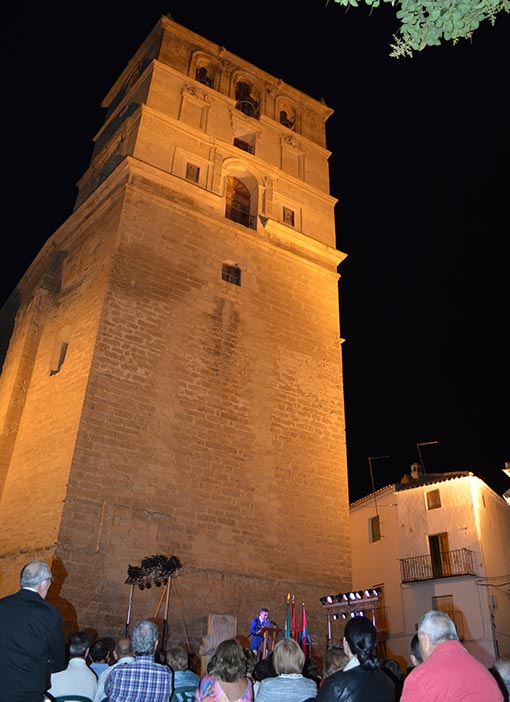
We present you with the English translation of Miguel Angel Santaella Leal speech presented during the XX evening "Alhama, City of Romances" on saturday 13 august 2016.
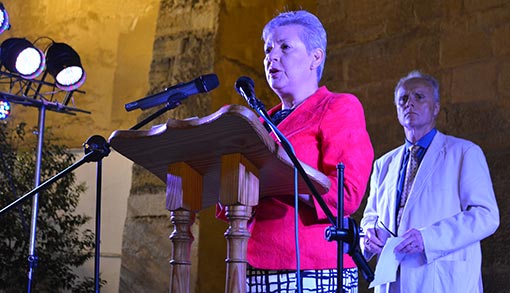
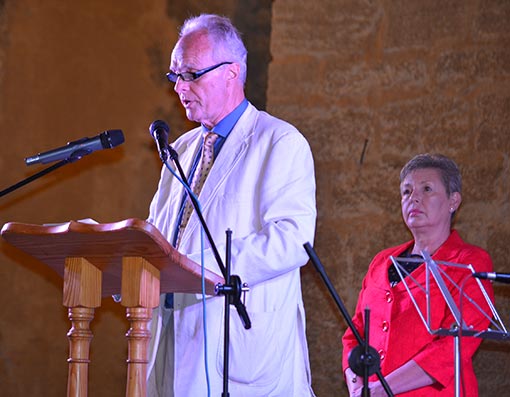
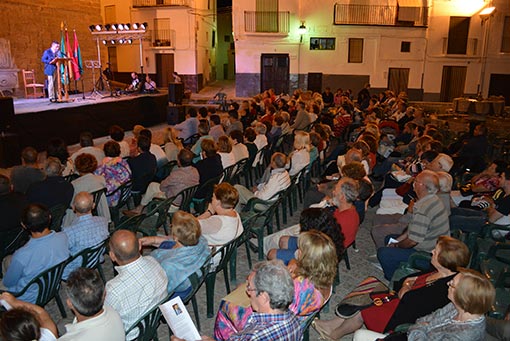
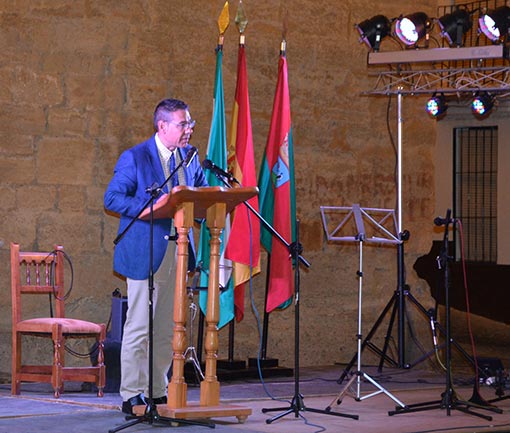
Intervention of Miguel Santaella Leal at the XX Romance Evening
Mr Mayor and Councillors of The Ayuntamiento of Alhama de Granada, Mr President and members of the Patronato of Alhameño Studies, ladies and gentleman. Good evening.
In the first place I would like to thank The Patronato of Alhameño Studies, the Ayuntamiento of Alhama, Alhama Communication and to all you Alhameños and Alhameñas for the invitation to participate in this the Velada de los Romances that today reaches its 20th edition.
A few days ago I received a call from Mr Andrés García Maldonado in which he informed me of the kind distinction to be invited to be here tonight.
When I hung the telephone and after sharing the news with my wife, I started to wonder in a subliminal way, what where the reasons behind such honour, to be part of the long list of illustrious guests of this emotional evening. In front of this podium, during the last 19 years, personalities of the culture, communication, art and other walks of life whose works have made them deserving of such a distinction, I feel are far worthy than a humble secondary education teacher, who like many others, only tries to do his job to the best of his ability. I think I have found two reasons, which of course do not equate in merit to my predecessors but I feel identified with and increases my personal and professional happiness that bonds me with you.
The first, is the generosity and friendliness shown to new arrivals by the people of the Comarca de Alhama, whether we stay for short or long periods of time.
Generosity and friendliness that inspires all who work or worked in the IES Alhama and that today, with your permission are here with me in this podium.
Generosity that became evident for the first time, when I was only 6 years old and our family was travelling through the Comarca and our car broke down near Santa Cruz. Imagine the situation, a young couple with 6 and 3 year old boys, end of the weekend, travelling late at night in a world without mobiles phones, kilometres away from home. My father left my mother, brother and myself in the car and walked back to Alhama. Along the way he was picked up by an Alhameño, who not only took him back to Alhama but woke up a mechanic and brought him back to us, waited until the car was fixed then and there, so we could continue on our way. The anecdote was repeated by my parents and I always wanted to come back to this town of generous and friendly people. This is the first memory and contact I have about this town and it was already evident the generosity and friendliness I mentioned.
Since then, my relationship with Alhama was that of listening to my parents, always smiling referring to the anecdote, every time we travelled past Alhama in our old Renault 5 when visiting the Robledal to walk up to the Sierra.
This changed when in 2005; Alhama and I crossed ways again. That year I came here to fulfil a teacher assignment in the Institute, and curiously, mechanics also was part of the story as part of my responsibilities are still teaching mechanics and auto motion in the Institute.
But thinking about it, between 1976 and 2005, Alhama has been present in my life and in that of many youngsters without being conscious about it and without having visited this land and that presence has a lot to do with the reason we are here tonight.
This changed when in 2005; Alhama and I crossed ways again. That year I came here to fulfil a teacher assignment in the Institute, and curiously, mechanics also was part of the story as part of my responsibilities are still teaching mechanics and auto motion in the Institute.
But thinking about it, between 1976 and 2005, Alhama has been present in my life and in that of many youngsters without being conscious about it and without having visited this land and that presence has a lot to do with the reason we are here tonight.
Alhama is the town of the Romance, legend, literature, history. We say that the history of a place has been written with golden letters when we want to highlight its importance and value. Alhama can show off a name and history perpetuated with nobility and superior value. Alhama and its history have been written in blackboards for many centuries, in the notebooks at school desks and have embroidered the air in the schools, have been absorbed by our pupils.
Those who have some years on our backs, will remember that during the language classes we heard of Alhama when we learnt about Miguel de Cervantes and his works, we were presented with Zenotia, a character in Cervantes last novel "The works of Persiles and Sigismunda" "She was born and bred in Alhama, a city in the kingdom of Granada, who with her beauty was able to remove the sun's rays and marvel with clouds, make the earth tremble, fight the winds and change the direction of the sea waves." and many other powers that Harry Potter would like to possess.
It was very exciting for a child to imagine the control of such powers; even more it was incredible for me to discover, when I was an adolescent, living in Velez Malaga, that the character was inspired by the story of the Alhameña Elena de Céspedes, the first woman surgeon, who being transsexual was living as a man, with the inquisition on the doorstep back in the middle of the XVI century. Once again, my curiosity was awakened and the name of Alhama de Granada was present, without having stepped on its land.
And what can I say about the Romance that unites us tonight? In how many schools and institutes Alhama de Granada´s name has been known thanks to the story of the Moorish king who lost Alhama? I believe that in every one of them.
And speaking with my wife about it, she mentioned that she knew about Alhama long before she moved to Malaga, when being a pupil of the Dominican School of Arande del Duero. With the nuns, she learnt the poem by memory, it used to be recited in class and to this day, she is able to repeat some of its verses. In fact when she moved to live in Velez Malaga, aged 16, one of the first things that caught her attention was that the town that the poem talked about was very near and she came to visit Alhama.
It is a fashionable discussion whether to learn things by memory is recommended or not. I think it worked for her.
The first time one visits Granada, and the doors of its medieval wall, we all go to at least two, the Elvira and the Vivarrambla because in school we learnt that the Moorish king was walking between them when he received the sad news of the fall of Alhama.
The first time one visits Granada, and the doors of its medieval wall, we all go to at least two, the Elvira and the Vivarrambla because in school we learnt that the Moorish king was walking between them when he received the sad news of the fall of Alhama.
School teachers explained to us that a Zacatín was an Arab market where mainly textiles were sold but also artisans, silversmiths, tanners, dyers, shoemakers traded, because that word we did not understand when we read
He quits his mule, And mounts his horse,
And through the street directs his course; Through the street of Zacatin
To the Alhambra spurring in. Woe is me, Alhama!
And through the street directs his course; Through the street of Zacatin
To the Alhambra spurring in. Woe is me, Alhama!
I even remember a history teacher reflection when asked what do you think about the origins of the anonymous author of the poem "Woe is me, Alhama". We used to analyse the paragraph where the Alfaquí challenges the king to reprove that what happened is a result of his misguided acts as leader and says:
Out then spake old Alfaqui, With his beard so white to see,
“Good King! Thou art so justly served, Good King! This thou hast deserved. Woe is me, Alhama!
“Good King! Thou art so justly served, Good King! This thou hast deserved. Woe is me, Alhama!
My teacher, whose name I can´t remember, called to our attention the use of the word king. He used to say that it is very curious, that an Alfaqui, who amongst the Muslims is a doctor or sage man, knowledgeable of the law utilised the word king to refer to his sovereign. At the time it would have been more appropriate to call him Caliph or Sultan. Why did he call him king? Does it mean that the anonymous writer of the poem was Christian and he used a term that he was familiar with? Or maybe there was another message hidden in the poem; was the author taking the opportunity to talk to us about the syncretism between people? Was he talking about the capacity of fusion and assimilation of cultural or religious elements amongst different ethnic groups that coexist in the same land?
My teacher used to say that it was not difficult to imagine that in real life in the streets and town of Andalucía, amongst them Alhama de Granada during that time, after a century of coexistence, rare would be the Christian who wouldn´t have Arab influence or unusual to find a Muslim who wouldn´t be impregnated with the Christian culture. For that reason, the Christian term king would have been used by either a Christian or a Muslim poet as the word would have been assumed in their vocabulary.
Don´t you think this is a discussion subject that we could bring to our classrooms and maybe the news would be slightly different?
Don´t you think this is a discussion subject that we could bring to our classrooms and maybe the news would be slightly different?
The lament "Woe is me Alhama" has resonated in our classrooms in Spain, Europe and America. Fifty years between our Institute walls, thanks to the efforts and tenacity of the people of this Comarca who made it possible for the most able students of this land wouldn´t have to leave to continue their studies or at worst abandon them all together due to lack of resources to continue with their education.
Romances copy life, are life lessons. That is why their texts and some many other classic literature continue to be used in our classrooms to study historical events, but also to analyse today´s world. This is an example,
“By thee were slain, in evil hour, The Bencerrages, Granada´s flower;
And strangers were received by thee Of Cordoba the Chivalry.
Woe is me Alhama!
And strangers were received by thee Of Cordoba the Chivalry.
Woe is me Alhama!
In this verse we learn that Abencerraje was the last name of a noble family of the time and their political rivals were the Zenete. These decided to finish off their opponents and organise a conspiracy in which they invent an affair between the sultan´s wife and an Abencerraje. The sultan blinded by fury and jealousy takes the Abencerrajes as his enemies and in a party he decapitates over a fountain the 37 gentlemen who carry that surname.
But we also utilise it to introduce some other obscure historical examples such as the Black Dinner of 1440 in which the Douglas clan was killed in front of the 10 year old king James II just after they ate dinner together or the massacre of Glencoe in 1692 of similar characteristics. And if you like Games of Thrones, very trendy at present, you will not deny the similarity with the passage of the Red Wedding from the Storm of Swords book, in which the Frey family takes revenge on the Stark one.
Rage and revenge are current historical events, not only in the romance.
At the beginning of my intervention, I mentioned two reasons why tonight is a special occasion, I have spoken about the first one, and the second one is:
The commitment with culture, education, tradition and cultural heritage is something that I admire and through my work I have noted that it is important for families and institutions.
Salvador Allende wrote "men and civilisations without memory are worthless; because they do not worship the past that had significance and meaning and it turns them unable to fight and create anything great for the future."
For most people, but specially for educators, it is gratifying to see how society values these things and the Comarca efforts which are made to preserve the traditions, from the Carnival to the Romances, los Tajos, now a natural geological monument and its thermal heritage. Is there anything better to combat stress than a walk through the natural park followed by a dip in the crystalline waters of the cerezal on a hot summer´s day?
For most people, but specially for educators, it is gratifying to see how society values these things and the Comarca efforts which are made to preserve the traditions, from the Carnival to the Romances, los Tajos, now a natural geological monument and its thermal heritage. Is there anything better to combat stress than a walk through the natural park followed by a dip in the crystalline waters of the cerezal on a hot summer´s day?
The philosopher Marcelino Menéndez Pelayo said that "The people who don´t know their history are condemned to irrevocable death. It can produce isolated brilliant individuals, traits of passion and wit..., but they will be like lightening that will make more evident the gloom of a dark night".
Cicero said, "He who forgets its history is condemned to repeat it." I would add to this that he who forgets, doesn´t learn, doesn´t grow, doesn´t improve. The cultural heritage is a source of knowledge and collective memory, but also the engine for the local and regional development. Promoting cultural and sustainable tourism based on the material and immaterial values of the community.
Thank you for inviting me to participate in your objective to put value to local history, you do it very well in a unique manner but it is my intention to highlight the imaginary common link between Alhama and those who live here but were not born here. Alhama resonates in the history of us all, because our personal history passed through Alhama. Alhama was lost by King Abu Hasan Ali but won for many of us.
Tonight not only we render homage to the romancero Alhameño, but also promote the cultural and economical wealth and let me congratulate you for that.
Alhama is the city of romance, with generous and welcoming people with their own and with the foreigners. With passion for its history, its education and its culture. Its name has been engrained in our knowledge and heart. What else can someone ask for their town?
I hope it will continue to do so. Thank you and good evening.
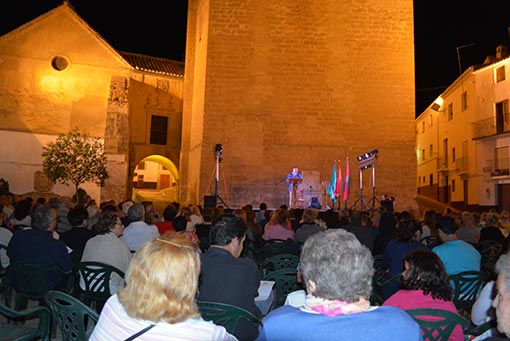
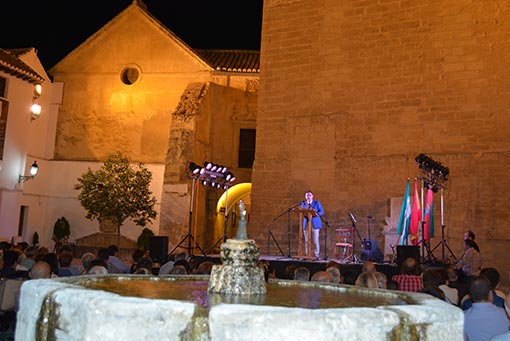
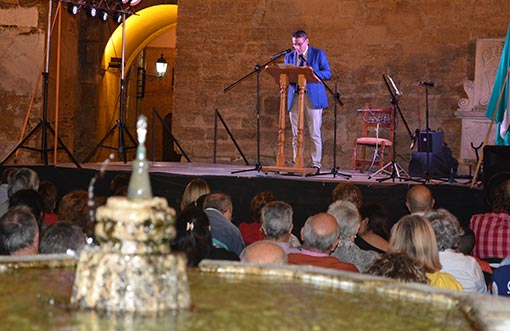
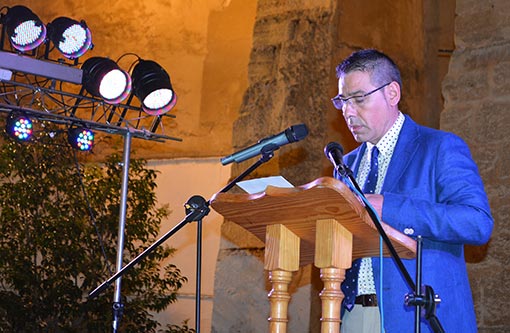
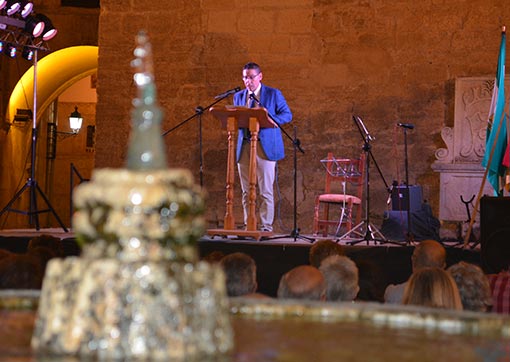
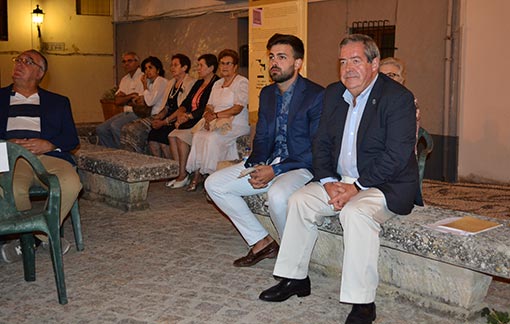
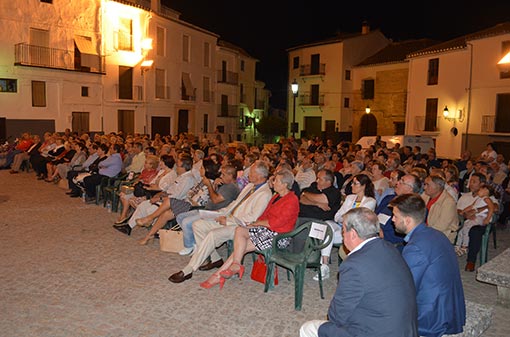
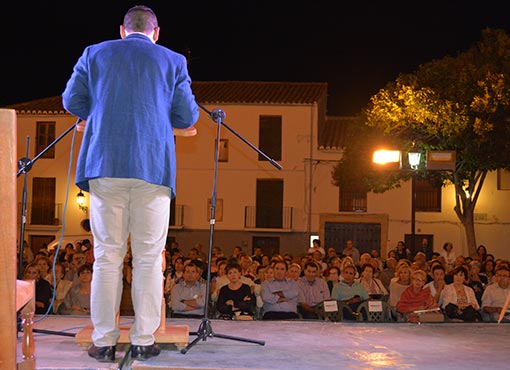
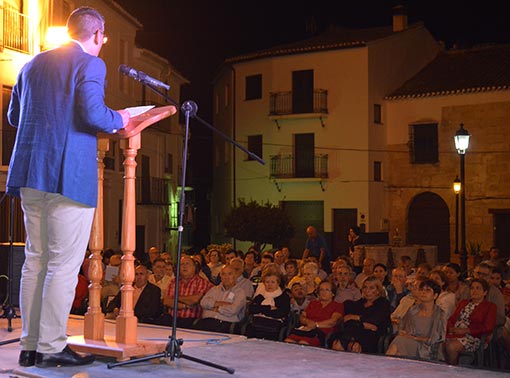
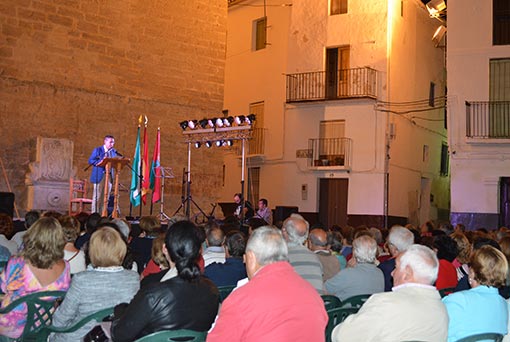
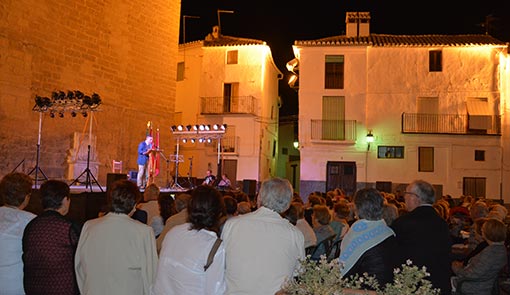
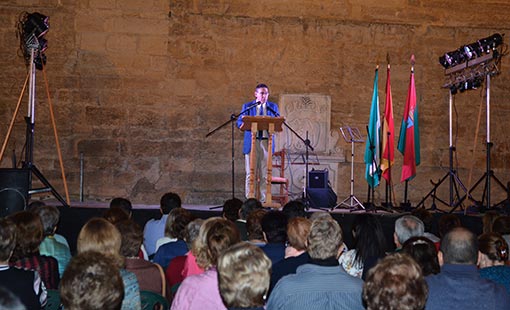
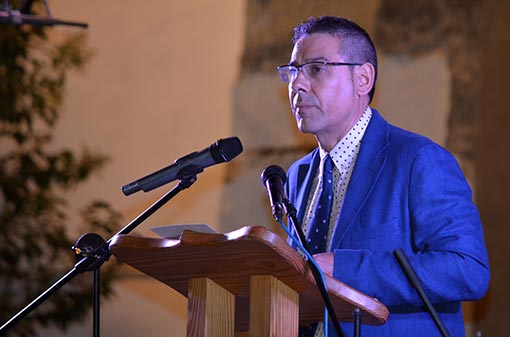
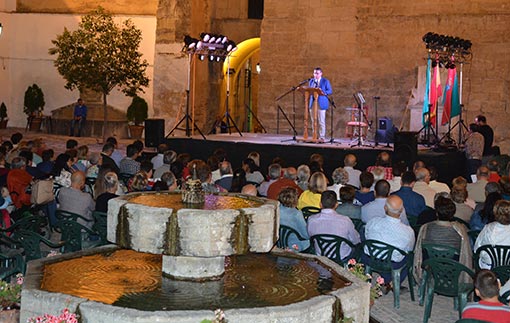
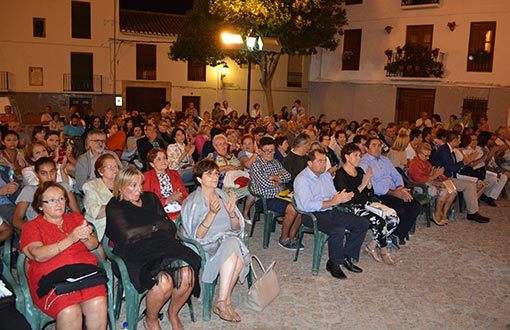
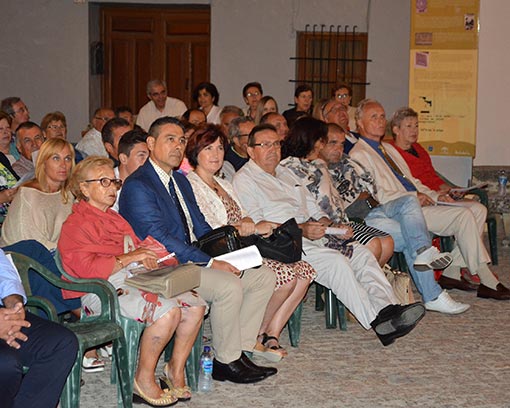
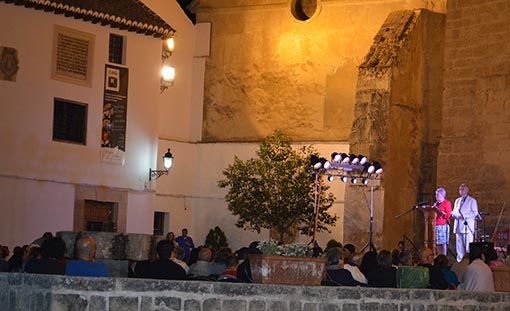
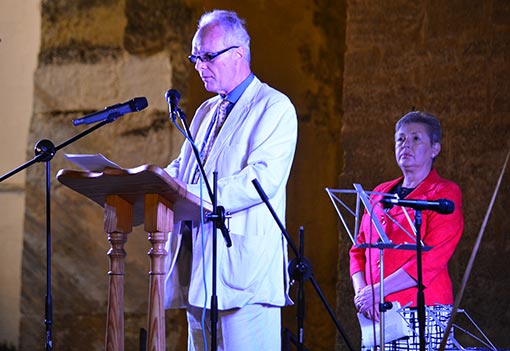
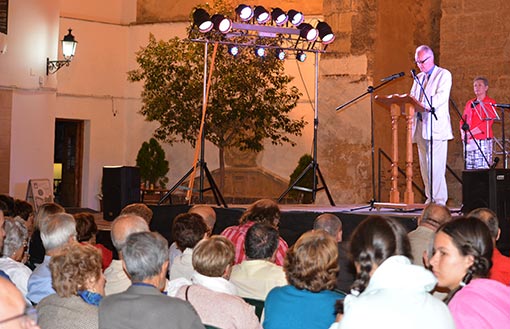
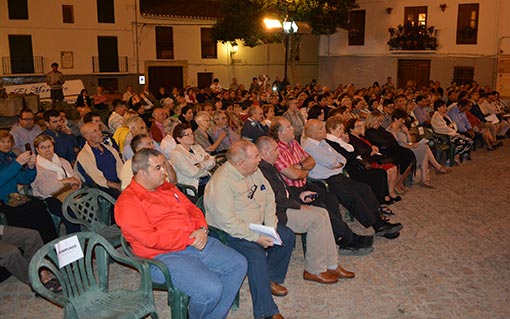
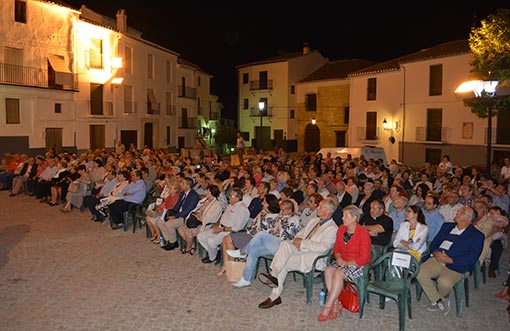
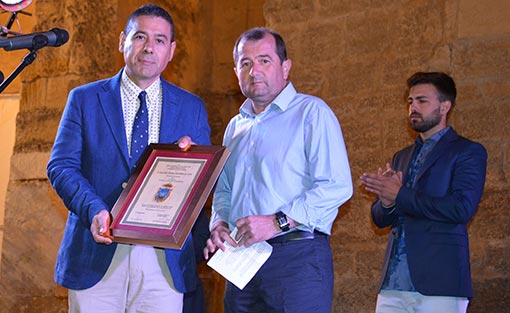
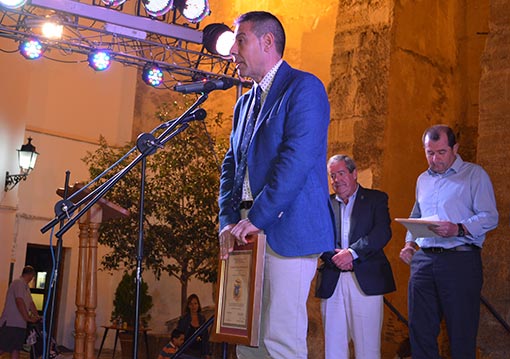
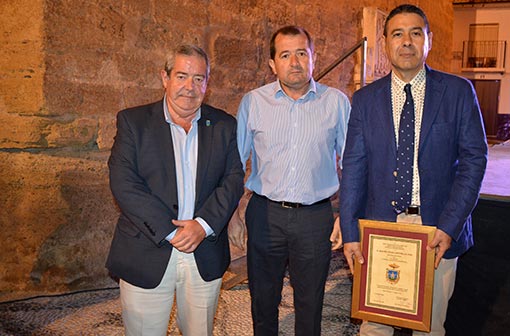
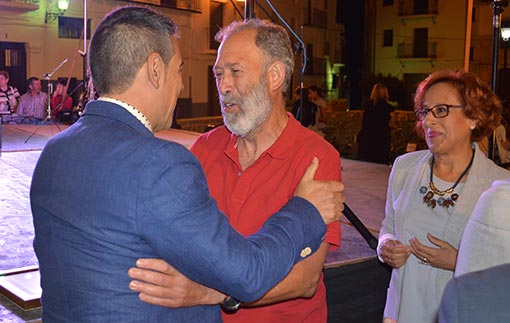

Photos: Pablo Ruiz.